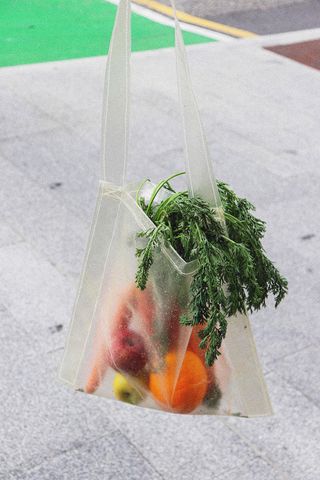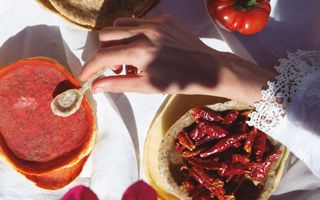- Elisava Food Design Lab works on projects focused on various key fields or topics: materials, information and data visualization, social innovation, creative processes or technology
- The Barcelona School of Design and Engineering has addressed the strategic line of food design with renowned chefs, companies, institutions and NGOs in the sector, such as Ferran Adrià, the Torres brothers, the Celler de Can Roca, Danone, and Flax and Kale, among others.

The new Elisava Food Design Lab is a physical and virtual space dedicated to the study and dissemination of food design as a discipline focused on facilitating systemic socio-cultural, economic, environmental and even political transformations.
If human activity has an indisputable impact on any field, it is on ecosystems and natural resources. Furthermore, the globalized food system, built on an unsustainable basis of monoculture on an industrial scale and fuelled by systemic injustice and environmental degradation, is currently in a surprisingly fragile state of critical transformation.
All in all, it is more necessary than ever to conduct an in-depth analysis of the situation. This could be based, for example, on food design and systems, which addresses issues such as how food and bio-based systems should be more inclusive, safe and healthy, thus guaranteeing the food and nutritional security of the population as a whole.
Food design and systems addresses issues such as how food and bio-based systems should be more inclusive, safe and healthy, thus guaranteeing the food and nutritional security of the population as a whole
In this context, Elisava Food Design Lab works on various projects focused on key fields or topics, including materials (circular solutions and agroecology), information and data visualization for social awareness, social innovation through design of food and food systems, creative processes (decoding, for example, creative gastronomic experiences) to technology, and from open design to systems in which food and technology coexist.

More than a decade of research in food design with renowned international partners
Food design is now being talked about in many areas and contexts, but it is not a new term in Elisava. In the last decade, the school has considered food design and systems as a strategic line of research and has addressed this field in collaboration with renowned chefs, companies, institutions and NGOs in the sector.
These include Ferran Adrià and elBulli, Cocina Hermanos Torres, the Ecomuseo della Dieta Mediterránea FORK, Celler de Can Roca, Xano Saguer and EspaiSucre, Danone, and Flax and Kale, among others. The school has over ten years of experience in the service of a common goal: to help make food design an agent of change that can help democratize society.

Training, mentoring, student work and attending festivals
The Elisava Food Design Lab’s fields of activity are diverse and underline the cross-cutting nature of food design. They include education, mentoring, final degree work and presence at festivals.
In the area of education, training programmes are being developed in primary and secondary schools, companies and universities to encourage the use of design as a tool to generate change that improves the food chain.
Mentoring is also carried out for companies, startups and institutions through food design training programmes. In this regard, the Food Design Lab will soon have a residency, mentoring and a series of technology transfer programmes through education and research.

At the same time, the Elisava Food Design Lab is working so that the projects of alumni of the Barcelona School of Design and Engineering can go one step further and become real startups that can help to improve food systems
At the same time, the Elisava Food Design Lab is also working so that the projects of alumni of the Barcelona School of Design and Engineering can go one step further and become real startups that can help to improve food systems. Good examples are projects such as “Voilà” or “Agro”, which show how education and Elisava’s focus on food design and systems can help implement change (one of Elisava's added values) by trainers and future professionals, thus carrying out the necessary social revolution around food.
Regarding final degree projects, Elisava students have in recent years been committed to food design at the heart of their work. This highlights the concern and interest of the new generations in this field of design, which is directly connected to the current situation and challenges of society. Some examples are “Soundametric Food” by Rafa Prat; “Gala - Gastronomic Visual System” by Marta Torras; “Sex-abled” by Guillem Alemany; “Aroma” by Tomàs Cano, and “Primitive” by Alejandro Linares.
Elisava’s work on food design is also evident in its presence at conferences and festivals such as the Food Design Festival or the upcoming EFood 2022; in the production of articles and interviews (CaixaBank Talks, Shifta), and in awards that recognize the work done so far, such as the Foodture 2021 Award for Sustainable Innovation for “Agro” by Berta Daina, or the Innofood Award (Barcelona Activa + Mercabarna) awarded to “Voilà” by Laura Gispert.